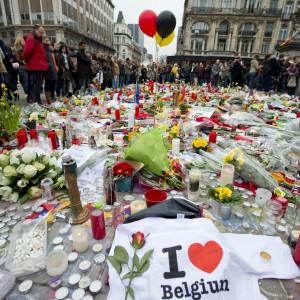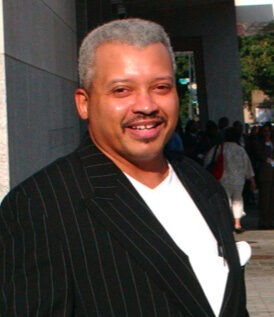On days like this, one hour can seem like 24.
Marie Morales, who lives near Frankfurt, Germany, knows firsthand. It was the morning of March 22, when terrorists detonated bombs at the Brussels airport and a Metro train station in the city.
Morales heard the reports on a radio while visiting her physical therapist around 9 a.m. Frankfurt time. “I was freaking out from that moment,” Morales, who works for an international insurance company, said by telephone the other day. She tried to call her brother, who is employed at a computer company near the airport.
She heard a dial tone, but the call went directly to voicemail. She left a voice message, then transmitted a text. No response to either. Dialed the number repeatedly thereafter. No tone, no busy signal either. The minutes slowly passed, frighteningly so, it seemed. Until … an hour later. The cell phone rang. It was her brother. He was OK.
Relief, finally.
That scenario surely played out in similar fashion all around the world that ominous day. It was the most devastating attack on Belgium soil since World War II, when Nazi Germany’s vaunted Wehrmacht simultaneously invaded Belgium, Luxembourg and the Netherlands in May 1940 with its blitzkrieg forces.
Amid the rubble of the airport and subway stop, at least 30 were dead, with at least 270 injured. People from 40 countries were killed or wounded in Brussels. In the aftermath of the terrorist attacks in Brussels, what have we learned:
—Belgium’s counter-terrorism intelligence is abysmal.
—Belgium’s rules and regulations on the logistics of conducting anti-terror raids are ridiculous.
Before March 22, Brussels police were forbidden from conducting raids on private residences between 9 p.m. and 5 a.m. Those, apparently, are considered sleeping hours for Belgians.
Must be for criminals and terrorists, too.
Can you even ponder a night-time raid ban by law-enforcement organizations in the United States? Yeah, let the criminals get their beauty rest. Cannot even fathom it. Imagine the alphabet corps of ATF or FBI or DEA essentially being eunuchs between dusk and dawn.
The chaos of policing terror in Europe even prompted Ashton Carter, U.S. secretary of defense, to pronounce: “The thing that I think the Brussels event is going to further signify to Europeans is that they — as we have been accelerating our campaign to defeat ISIL in Syria, in Iraq and elsewhere — they need to accelerate their efforts and join us.”
No doubt.
After the attacks, headlines similar to this one in an Israeli publication blared in print media and broadcast outlets alike: “Belgium ignored Turkish warning about Brussels attacker.”
Belgium is a small country of about 11 million nestled between France and Germany. Like some other European cities, Brussels is burdened by ghettoized areas of Muslim inhabitants. Unlike the United States, where Muslim people largely have assimilated into American culture, western Europe has been saddled with sort of an outlier society. Lack of education, unemployment rates as high as 40 percent, distrust of the police and a feeling of disenfranchisement have resulted in enclaves of resentment in some of the Muslim neighborhoods. Especially among angry, male Muslim youth.
That’s when ISIS rears its ugly head, with recruitment efforts tailor-made for the disaffected.
We witnessed Paris in November and now Brussels in March. It appears ISIS and its followers are picking off significant western European cities one by one. Like pigeons on a high wire. Who’s next, many experts have asked.
We heard NBA Hall of Famer Dikembe Mutombo, in the Brussels airport for a connecting flight during the attacks, acknowledge that “angels were with him” as he escaped injury and harm.
And notice, the descriptions of the terrorist violence usually reference a similar historical note each time: “in the worst attack on that European country since World War II …”
Brussels houses the seat for the European Union, which essentially means it’s the de facto capital of the EU. The city also has been the home of the North Atlantic Council, NATO’s senior political decision-making body, since 1967, after initially being based in London and later Paris.
So we see the gravity of this tragedy — both in human toll and global importance. We also learned that political infiltration wouldn’t miss this maelstrom. Republican presidential candidates, such as Donald Trump and Ted Cruz, were quick to revisit torture and racial profiling arguments to deal with Muslim communities.
Both men and their superficial solutions were greeted by a staunch rebuke from Hillary Clinton, the front-running candidate from the Democratic side.
All the while President Barack Obama has been roundly criticized in some corners for attending a baseball game with Cuban leader Raul Castro on the day of the terrorist attacks, then dancing the night away tango-style in Argentina the next day.
Politics for all seasons, right.
What else did we learn … again: Time travels slowly when fright overpowers all over emotions. We all can relate to that.


